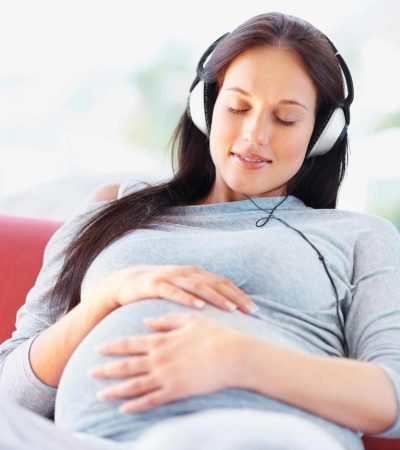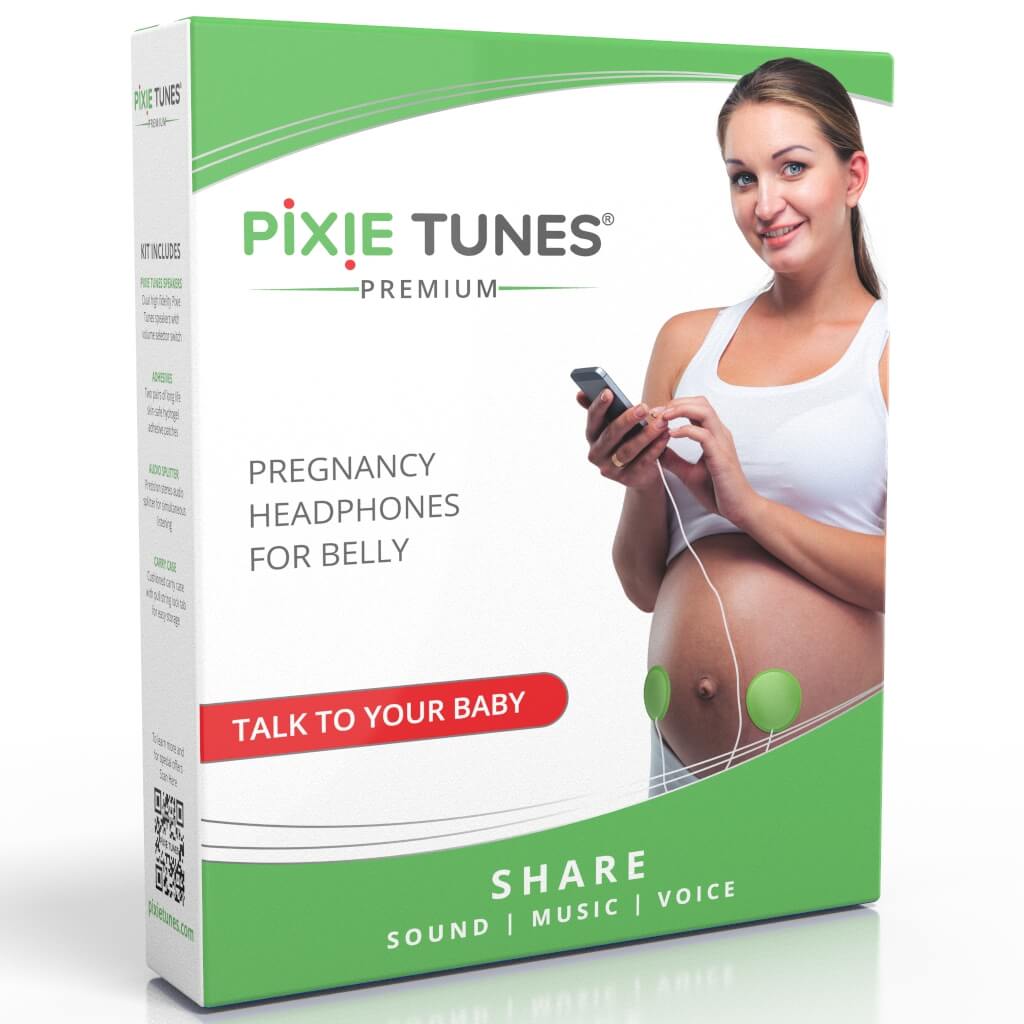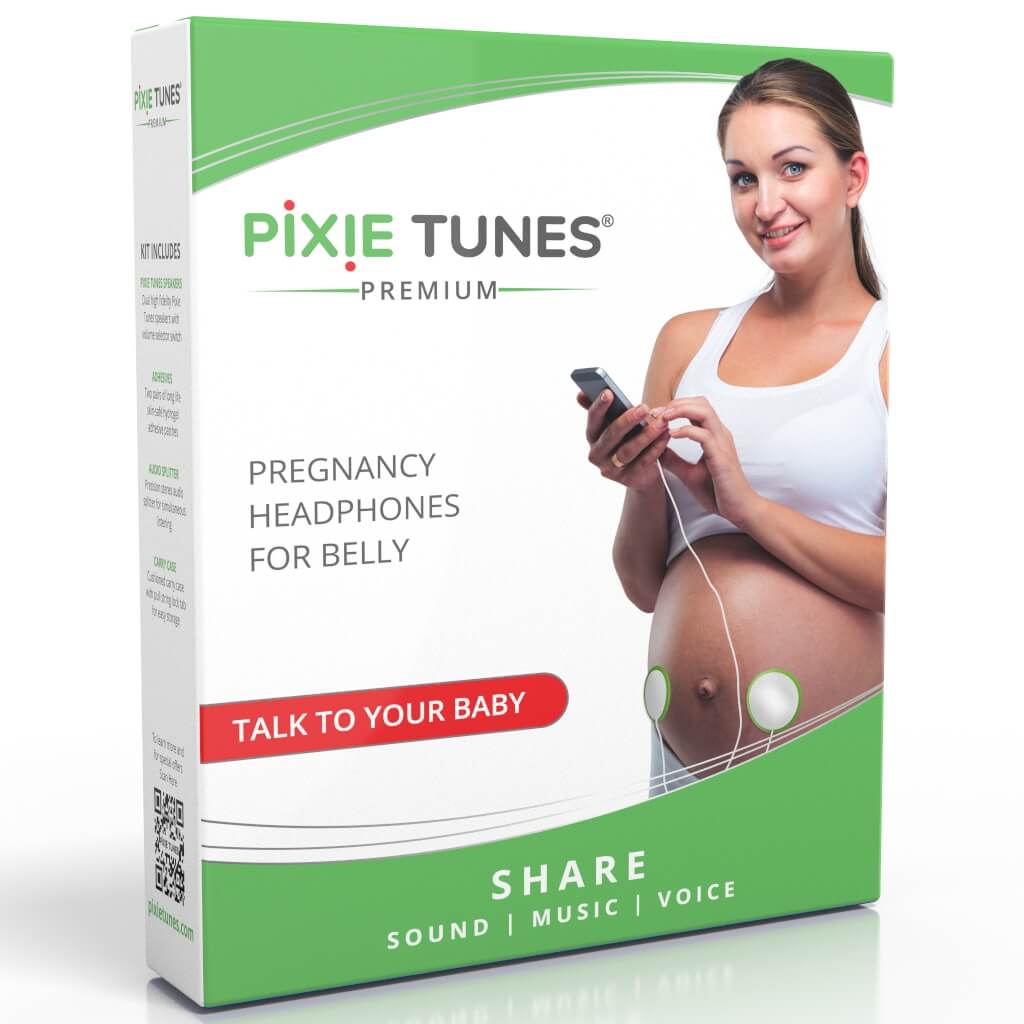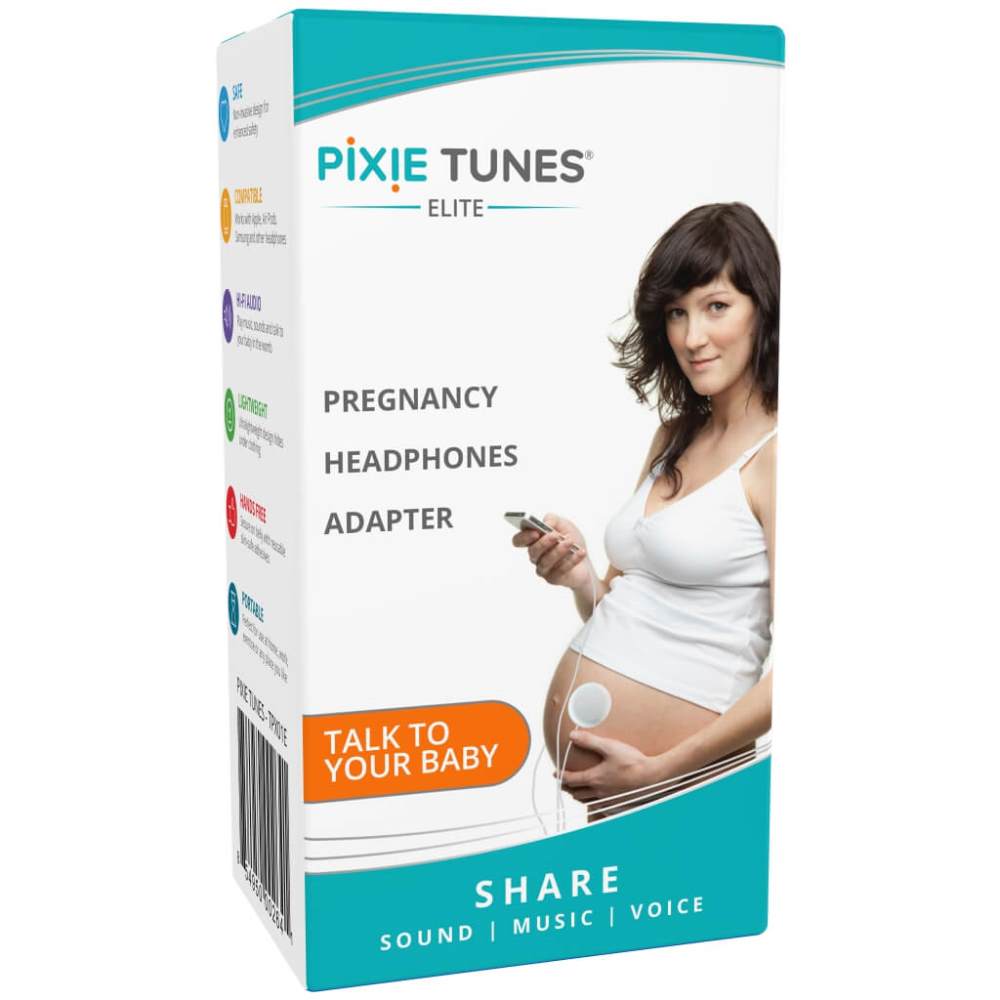Translate:

AWARD WINNING
Pregnancy Speakers

OVER 100,000
Sold Worldwide

#1 RANKED
Belly Headphones
- No products in the cart.
Music for Womb

There is ample evidence from research to support that an unborn baby can not only hear music in womb (fetus music), but also recognize certain sounds including mother’s voice, words and phrases. An unborn fetus can distinguish among classical music , womb music and noise and will many times respond by kicking the belly from the inside. A research conducted by the University of Florida concluded that the unborn fetus hears more low-frequency sounds rather than high-frequency sounds. Which means that the baby will hear womb sound for baby better compared to noise. The Fetus can recognize music for womb.
Fetus development over time
Below is a table that shows fetal development over time.
| Week of pregnancy | Fetal Development |
| 4–5 | Cells in the embryo start to arrange into baby’s face, brain, nose, ears, and eyes. |
| 9 | Indentations appear where baby’s ears will grow. |
| 18 | Baby starts to hear womb music. |
| 24 | Baby is more sensitive to music for womb. |
| 25–26 | Baby responds to music in thewomb. |
The baby’s ears begin to develop in the 2nd month of pregnancy and are developed like a human ear (sticking out from the sides of the head) at 18 weeks. The cells of the ear that are connected with hearing begin to develop in the 9th week of gestation and are functional between the 18th and 20th week of pregnancy; much before the fetus is fully developed.
During the 16th week of pregnancy, the ears connect with neurons in the brain, specially the part which is responsible for audio processing. The tiny bones of the middle ear which are responsible for hearing develop and it is at this time that the structures are well developed, and the baby starts to detect some sound. At that time, the brain designates areas that control sound, vision, taste, touch etc. As the fetus grows, it can distinguish many different sounds and baby music in womb.
Although the sounds detected are limited, they are noticeable to the baby. These sounds include the rumble in the mother’s stomach, her heartbeat, the breathing in and out sounds from the mother’s lungs and in some cases, the mothers voice.
Over time, the baby begins to hear more and more sounds, specially of the outside world and special womb sound for babies. The auditory system development starts at the 18th week of pregnancy and continues through the 6th month. This means that the fetus can recognize and respond to music for womb and sounds. By week 25, babies have been shown to turn their heads in response to voices and noises.
During months 6 through 9 of pregnancy, the fetus’ auditory system is developed fully. The baby not only hears sound and music for womb, but the sound also passed through the nerves to the brain and is processed.
Low Frequency v/s High Frequency Sounds
We know that sound better through open space (air) than underwater (like a swimming pool). Since the fetus is not exposed to open air, the fetal music and music for womb it hears are analogous to those heard under water. The fetus is surrounded by amniotic fluid. External sounds heard by the fetus are heavily muffled by the body, skin and the amniotic fluid.
The fetus is able to better hear low frequency sounds such as classical music for baby in womb which travel more easily at low frequency compared to high frequency pitches. High frequencies are attenuated (reduced in amplitude) by the mother’s abdominal wall and the amniotic fluid.
Several studies have also shown that a fetus’ heart rate increases when they hear mothers voice and a variety of baby music in womb. This indicates that the baby recognizes the mothers voice and is more alert when mother speaks. Many mothers chose to carry conversations with their baby, reading out books to them and singing songs to their baby. Repeating these techniques over and over will help the baby recognize mothers voice.
Hearing Development – From birth (0 months) to first birthday (12 months) old
From birth: Born baby can recognize mother’s voice.
|
Age in months |
Action |
| 3-4 | Baby begins to react to loud sounds by jumping or blinking. |
| 3-6 | Baby starts turning towards a sound. |
| 6-10 | Baby starts babbling and understands when we say simple words like “no” |
| 8-12 | Baby actively tries to imitate sounds |
Conclusive Study
A study in the Proceedings of the National Academy of Sciences concluded that unborn babies hear what their moms say and the baby’s brain recognizes certain words after birth.
For the study, scientists evaluated at 33 moms-to-be before they had their babies and again examined their babies after birth. For the study, half the expectant mothers were told to listen to a CD at loud volume with two, four-minute sequences of several made-up words. This was done from week 29 of pregnancy till birth. A random made up word was selected for this study, one which has not been heard or used before. The moms and babies heard the made-up words between 50 to 75 times. The other half were not made to hear the word. After delivery, the scientists tested the all 33 babies for normal hearing and then performed a brain scan to see how the newborns would respond to the made-up words. Babies who listened to the made-up word played by the CD in recognized the made-up words and noticed the pitch changes. There was brain activity picked up the brain scan. Babies who did not hear the CD did not recognize and respond to the made-up words.
Care Directives
There are some recommended best practices and care directives for expecting mothers. During a normal pregnancy, from the 20th week of gestation till delivery, it is recommended to limit sound levels in the vicinity of the mother be below 85 dB. because of sufficient evidence of increased risk of low weight for gestational age and a suspicion of increased risk of preterm birth, and gestational hypertension.
Pixie Tunes
Pixie Tunes pregnancy headphones come with everything you need to enjoy music for womb with your baby and is compatible with most cell phones and mp3 players! No special APP needed. Just insert into your phone and Pixie Tunes belly speakers are ready to use. What’s a better gift than this?
Chose from one of 3 Award winning Pixie Tunes Baby Headphones for Belly to make the perfect pregnancy gift for mom-to-be.




